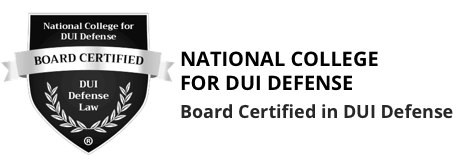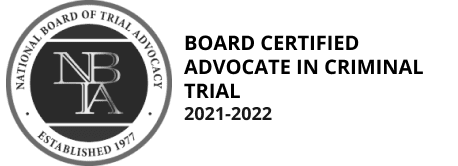If you have been charged with BWI in Texas, contact attorney Mark Thiessen at 713.864.9000 or request a free case evaluation. We serve Houston and the surrounding areas and are available 24/7 to fight for you.
Hire a Texas BWI lawyer that wins
It doesn’t matter whether you’re waterskiing on Lake Conroe, fishing in Lake Livingston, or cruising the Intercoastal around Galveston, boating while intoxicated can result in an arrest and hefty fines as BWI in Texas is almost identical to DWI in Texas, and it comes with all of the same steep penalties.
The difference? Game wardens and aquatic police officers are given a lot more latitude in stopping and arrest making, and sobriety tests are even worse on the water. The broad nature of a boating while intoxicated stop means having a winning Houston BWI lawyer on your side is a must.
Mark Thiessen is not only an ACS-CHAL Lawyer-Scientist, but he is the only lawyer in America who is 3x Board Certified in DWI*. He has experience taking BWI cases to trial and winning, because he knows the science and the law behind BWI, and makes them work for his clients. If you or a loved one has been arrested on suspicion of BWI in Texas, call Thiessen Law Firm today at 713-864-9000 for aggressive and dedicated defense.
*Mark Thiessen is board certified in:
- Criminal Law by the Texas Board of Legal Specialization
- DUI Defense by the National College for DUI Defense as approved through the American Bar Association
- DUI Law by the DUI Defense Lawyers Association
- Board Certified Advocate in Criminal Trial Law by the National Board of Trial Advocacy Foundation
What is BWI in Texas?
In Texas, BWI and DWI are almost identical from just about every angle, although there are a few complicating factors. The first of which is that unlike driving around town, it is completely legal to drink while operating a boat on the water. The open container law in Texas allows not only passengers of a watercraft to consume alcohol, but the operators as well.
Whoever is driving the boat must operate that boat within the legal limit of course, and the legal alcohol limit in Texas is the same on the water as it is on the shore: .08%. The rules for public intoxication in Texas are also the same in the water as they are ashore — there are no international waters and passengers cannot behave like pirates, even if the captain hasn’t had a drop.
The major difference between DWI and BWI in Texas is the water — just kidding, it’s the stop. Texas boating laws do not require a game warden or aquatic police officer to have any articulate or specific reasonable suspicion or probable cause to stop a boat operating on the waters of Texas. However, an officer must have specific and articulate reasonable suspicion and probable cause to stop a motor vehicle back on land.
Marine field sobriety or “float” tests
So the aquatic police, game wardens, and coast guard are able to stop your watercraft for whatever reason they see fit. This is supposedly to make everyone out on the water safer, but it functions as a way to put more people in jail more quickly.
Similarly, the marine sobriety tests or “float tests” administered on the water also have the ultimate goal of putting you in jail. The ancient standardized field sobriety tests in Texas already pose a huge scientific problem in that none of them are designed to accurately measure blood alcohol level or sobriety — but the float tests pose even more of an issue. Why?
Well, the marine field sobriety tests are also ancient, developed by the National Association of State Boating Law Administrators (NASBLA) in the 1970s, but have to be administered on the water instead of the side of the road. What does this mean? Red eyes, flushed skin, poor balance, heat stroke, dehydration, fatigue. These conditions now all signify intoxication, especially to the poorly trained game warden who likely took a class on how to administer the float tests all the way back in the 80s.














